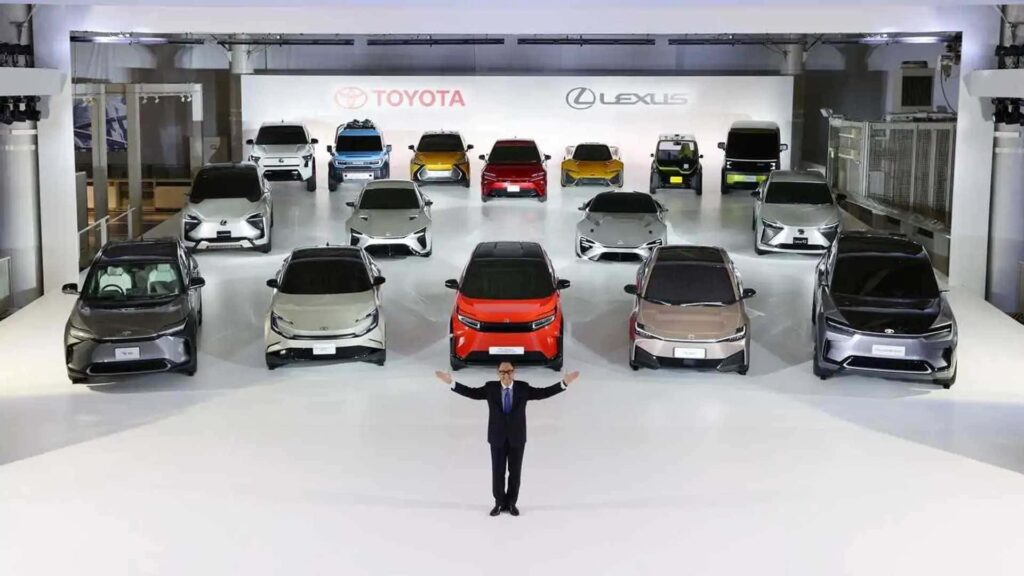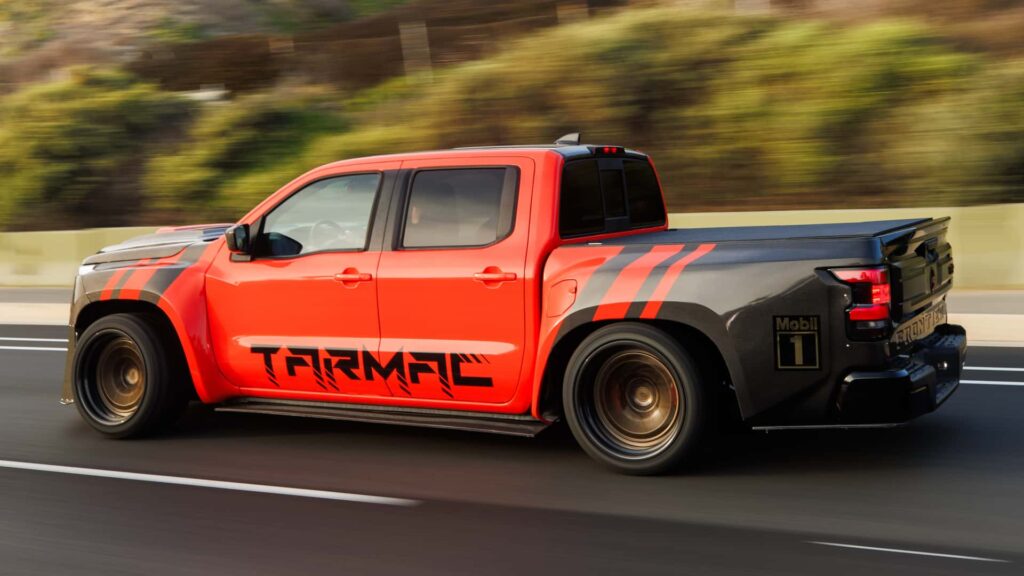
- Toyota is raising an alarm over regulations that require faster adoption of electric vehicles in California.
- The head of its North American operations said the current EV regulations will lead to “unnatural acts” and “distort the industry.”
- Despite the remarks, the Japanese automaker plans to launch several EVs in the U.S., including a three-row family SUV in 2026.
Despite being a pioneer of hybrid technology since the late 1990s, Toyota has been a laggard in the electric vehicle race. The automaker offers several hybrid and plug-in hybrid models in the U.S., but there’s only pure electric model in its portfolio, the bZ4x crossover. The Lexus RZ and Subaru Solterra are the same underneath but wear different clothes.
Toyota plans to launch several electric models in the next few years, including a three-row electric SUV made in America. It has also increased its investments in next-generation battery technologies and building out EV plants in the U.S. And yet, it has resumed criticizing the regulations that call for increased adoption of EVs to reduce vehicular pollution.
Jack Hollis, the chief operating officer of Toyota Motor North America, said California’s EV regulations would be “impossible” to meet, CNBC reported on Friday. “I have not seen a forecast by anyone … government or private, anywhere that has told us that that number is achievable,” Hollis said.
For years, California has spearheaded the path towards broader electrification. The California’s Air Resources Board’s Advanced Clean Cars II regulation calls for 35% of new vehicle sales to be zero-emissions from model year 2026. These models can be a mix of plug-in hybrids, battery electric vehicles and hydrogen fuel-cell models.
Photo by: Toyota
“At this point, it looks impossible. Demand isn’t there. It’s going to limit a customer’s choice of the vehicles they want,” he added. If the regulations remain unchanged, it will lead to “unnatural acts” and “distort the industry,” Hollis said.
It’s unclear how it will “limit” choice, as consumers will have the option to choose gas, hybrid, or electric cars when they walk into a showroom for years to come. The word “mandate” gets thrown around unrestrained these days, whereas the current regulations only encourage increased adoption, not a national ban on gas cars.
Regardless of his remarks, EV adoption remains robust in the state. Some 22% of new cars sold in California through September were EVs. More than half of them were Teslas, but rival OEMs have started catching up. In the third quarter, U.S. automakers sold a record number of EVs nationwide, with experts saying that 10% market share was now within reach.
Twelve other states, including Washington D.C. and New York, have also adopted California’s standards. Some plan to adopt the standards from model year 2026 onwards, whereas others plan from MY2027. California also plans to ban sales of gas cars from 2035 onwards, but those plans are pending federal approval and risk getting axed under the new Trump administration.
Scaling back the regulations may have a disastrous impact on the planet, which scientists say is already blasting past the 1.5 degrees Celsius threshold that nations were hoping to limit warming to. Tailpipe emissions also have an adverse impact on public health and are linked to several diseases and illnesses.
Have a tip? Contact the author: suvrat.kothari@insideevs.com


